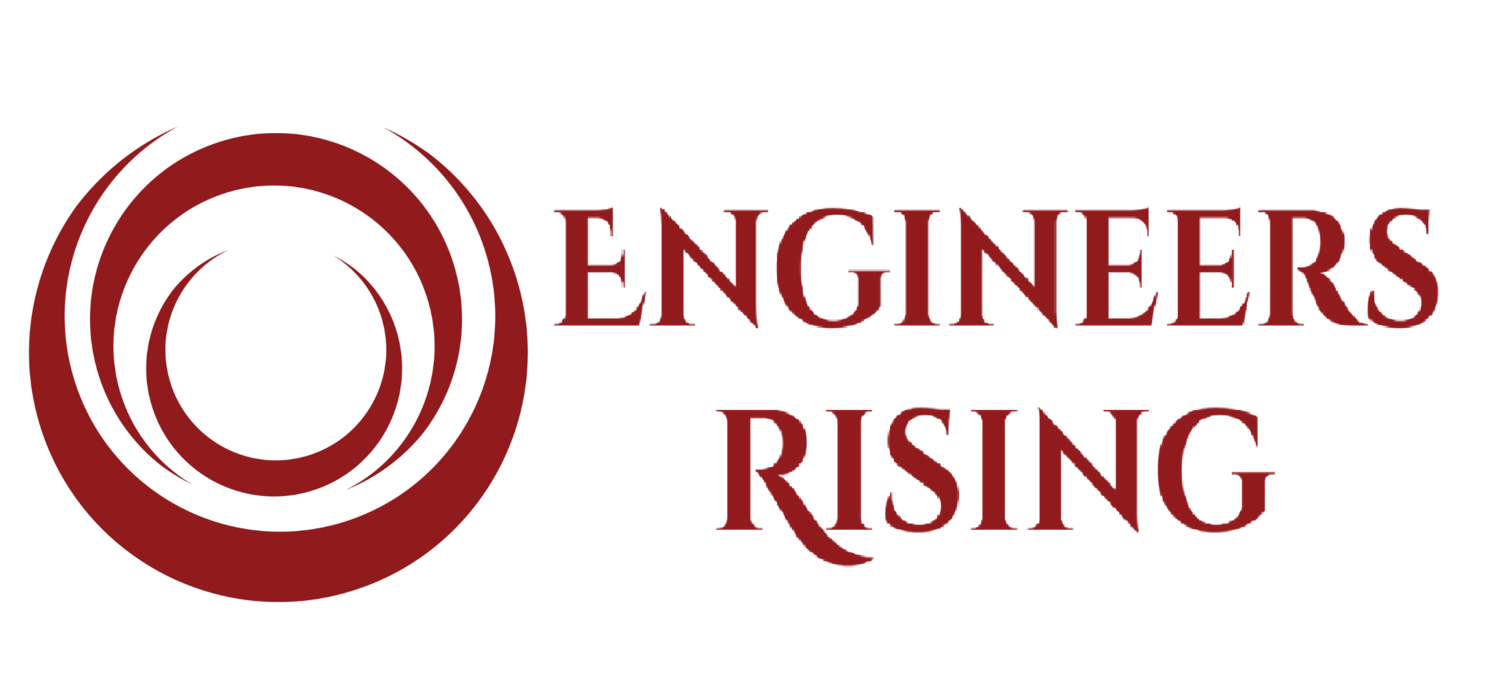It’s that time of year when many engineers are interviewing for a new position. Interviewing is a skill that can be practiced and developed. Some engineers are fortunate to have a knack for this. If you are anything like me however, you need to put a good amount of preparation into answering interview questions.
To help you, we’ve compiled some interview tips and a list of common interview questions engineers are asked. These questions could be relevant to many interview types, such as to obtain an internship or a first job, but are most common when an engineering professional has some experience and is looking for a new position.
Interview Preparation
I am always nervous before interviews, and have found that the best defense against a case of the nerves is to be prepared. My interview preparation has typically consisted of the following three steps:
Research the potential employer, preparing a few questions that demonstrate I both understand the company and my potential role.
Research the specific person who is interviewing me (if I know who that is) through LinkedIn or a Google search, looking for commonalities I can use during the interview to break the ice. For example, I always look at the college they have graduated from, as I’ve noticed if we have the same alma mater that creates an instant connection.
Practice my responses to common interview questions. We’ve compiled a number of those questions and tips for responses in this post.
I’m sure I don’t need to tell you to dress appropriately for interviews so you can make a great first impression. The appropriate dress and grooming completely depends on the engineering industry you are in, and the formality of the company where you are interviewing.
Some companies favor formal attire, and for female engineers, you will rarely go wrong by including a suit jacket or blazer in your interview attire. That applies even if you’re interviewing somewhere where jeans are the dress code. As you are considering your attire, it is worth noting that color psychology shows us that navy is the best color for a positive first impression as it portrays trustworthiness and gravitas.
Beyond your attire, a solid handshake, eye contact, a friendly greeting, and a confident smile are the other pieces of the puzzle for a first impression. Practice these elements with a friend until they come easy to you. For many engineers, looking someone in the eye and developing a solid (but not bone-crushing) handshake are the two areas that require practice.
How to Answer Common Interview Questions
#1 Tell me about yourself.
This question is not meant to flesh out your life story. Rather, it is an opportunity to see how you deal with open-ended questions and if you can make a connection with the interviewer.
Remember, the sole purpose of the interview from an employer’s perspective is to figure out if you are the right fit for their position and organization. For that reason, it is usually best to practice the answer to the “tell me about yourself” question in advance. That answer should touch on your skills, why you are interested in the position, and why you are a good fit for the organization.
Alternately, if you completely blank on this question, ask the interviewer a question in return, such as, “I’m happy to tell you about myself. What would you like to know?” The answer to this question puts you in a better position to answer appropriately.
#2 Why are you interested in a position with our company?
Here is your chance to demonstrate that you’ve done your research, you know what the company does, and state your compelling case that you’re a good fit because the position and company reflects your own personal values. Here’s one example of a response to this question: “This company is a regional leader in sustainable design, and I’ve been following a number of your projects [enter specifics here]. That commitment to the environment is one my personal values, and I am so excited about working at a place where I can have that sort of impact.”
#3 What drew you to [enter your field here] engineering?
This is a common “break the ice” first question. The interviewer isn’t looking for your life story. Give an abbreviated background, with a focus towards why you specifically think you are a good fit for both the industry and for this particular employer. “Because someone told me in high school you can make a good living as an engineer” is not an answer. Employers want to know you are excited to go to work.
#4 Describe a project you’ve worked on. What approach did you take, what challenges did you face, and how were you successful?
Share what a successful project looks like for you (i.e. the type of project that gets you excited to go to work every day). Be transparent by both highlighting your wins and talking about the challenges and how you overcame them. Interviewers aren’t looking to hear that everything went perfectly. They want to hear how you dealt with setbacks and conflict to create a successful project.
#5 Describe a challenge you faced on a project. Tell me what happened, how you reacted, and what you learned.
Interviewers are looking for honesty here, and a response that indicates you kept your (relative) cool, and looked for solutions rather than pointing fingers. No one expects every project to go well. What’s important is how you respond to failures and learn from them from them. An important note on this one is that’s a “red flag” if you can’t think of any challenges, so make sure you think about this one in advance.
#6 What do you enjoy most and least about engineering?
Be honest. Interviewers know that no one loves every aspect of their jobs. Answer with your least favorite activity that isn’t a core aspect of the job requirements. For example, you could say: “I enjoy design, interaction with clients, and especially getting out to a construction site to see my designs come to life. If I had to pick one thing I don’t love doing, it’s preparing proposals or checking shop drawings.”
#7 Where do you see yourself five years from now?
New employers invest a lot of time and money in your onboarding, training, and development. They want to know that you’re not biding time at this job until a better opportunity comes along. The answer you give should be reasonable to achieve with this employer. “I want your job,” or “I want to use this position to start my own firm” are NOT the responses you should give. Here’s one example response: “I would like to start out in this role as an E.I.T. and master the technical skills necessary to eventually move into a project management role.”
#8 What kind of work environment do you thrive in?
Be honest. Don’t say you love a collaborative environment if you do your best work alone. Don’t say you love a certain type of project if you don’t. Medium and large employers can often craft roles around people (especially if you’re a mid-level professional), and ultimately you will not be happy at work if you need to pretend to be someone you’re not.
#9 How do you stay on top of industry technologies, and how have you applied this to your work?
If you are asked this question, the interviewer wants to know that you are really interested in the industry, as opposed to just collecting a paycheck. If you’ve attended recent conferences, or volunteer on technical committees, say so. If you subscribe to newsletters or are a member of a technical society, note that. If you’ve neglected keeping up while you were doing a deep dive into a technical area, talk about that technical area that fascinated you.
#10 What do you do if a manager or client has a negative reaction to your design?
This question isn’t about communication. Rather, it’s about the interviewer trying to discover how you react in conflict situations. Do you get defensive? Assign blame or point fingers? Freeze? Accept responsibility for things that aren’t your fault? Or, do you look for solutions and stay calm? Your best bet if this question is asked is to give a specific example of a time when things didn’t go well, how you reacted, and what you did to help move the project forward.
#11 What kind of management style do you respond to best?
Don’t be tempted to say what you think the interviewer wants to hear. People leave managers, not companies, so if you are asked this question take it as a sign that the company actually cares about keeping their employees happy. In response, avoid using negative words. No one wants to be berated, micromanaged, or unappreciated. Instead, focus on what makes you, personally, thrive. You could say something like “I thrive when I have a lot of autonomy for decision making, and have a manager that’s acting more in a resource or mentor role.” Or, you may prefer a more hands-on manager, in which case you might say “I really enjoy working closely with my manager on projects. I thrive when I in that collaborative atmosphere most of the time.”
#12 When you are working on more than one project at once, how do you structure your day and priorities?
This question is likely to be asked if you are interviewing for a manager position. The interviewer wants to see that you can juggle multiple balls without getting flustered and taking your stress out on your team. They also want to see that you are the type of person who isn’t going flake the day before an important deadline. Demonstrate that you know how to set priorities. How do you organize your time? How do you make sure you hit deadlines? Once again, give an example if at all possible.
#13 How do you communicate your progress to managers or clients?
Show that you understand the importance of keeping clients up to date, preferably by giving a specific example.


